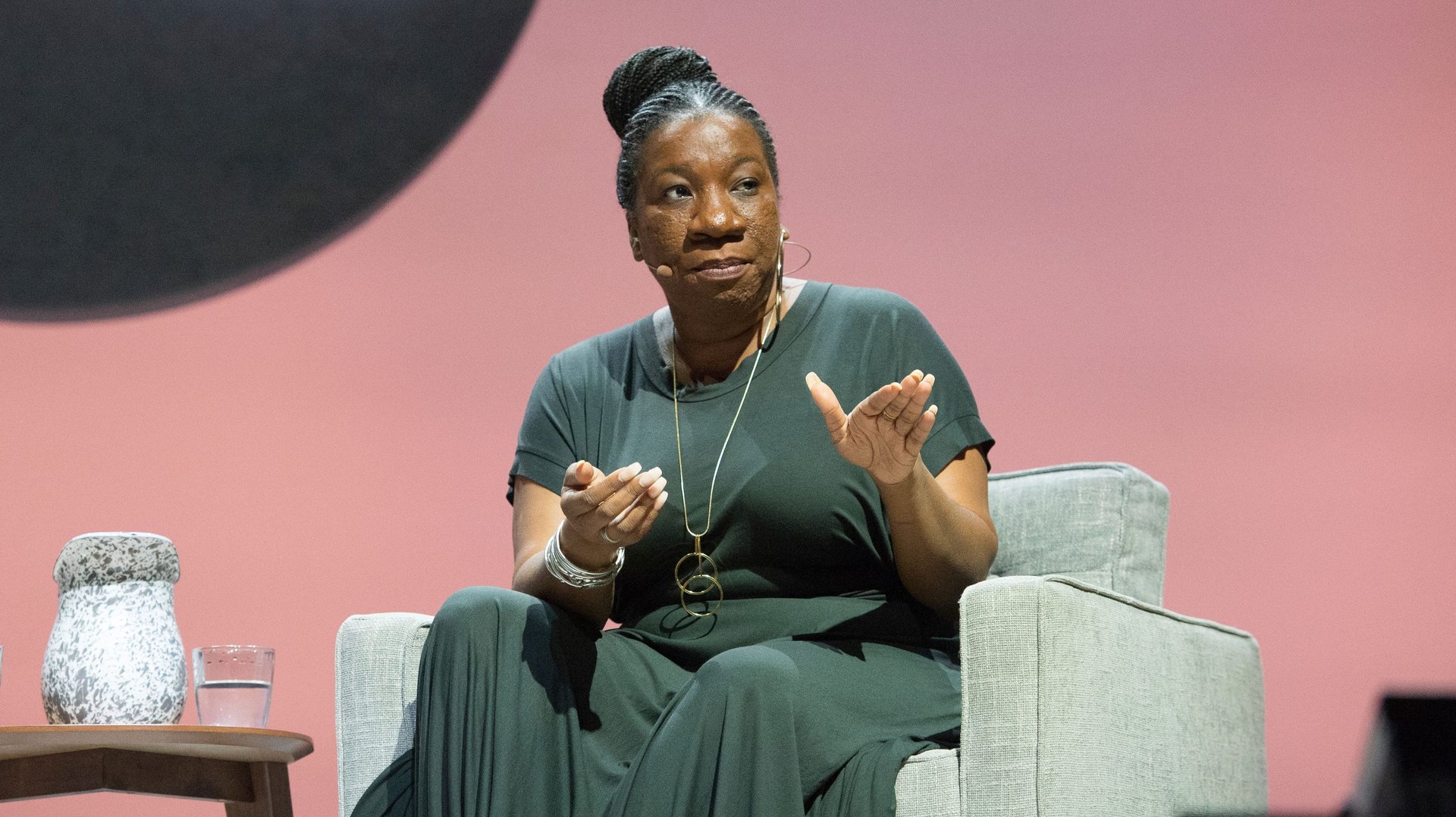Even the founder of the #MeToo movement is feeling numb—that’s why her TED talk is so important
Tarana Burke, the creator of the #MeToo movement, is feeling, in her words, numb.


Tarana Burke, the creator of the #MeToo movement, is feeling, in her words, numb.
“I know some of y’all are tired, because I’m tired. I’m exhausted, and I’m numb,” she says, toward the end of a just-released TED talk, her first.
It’s also the theme she opens with, a daring and refreshing approach to take on the TED stage, where most speakers launch with stirring stories, humor, or an interactive exercise to wake up the audience.
But Burke explains that having worried about what to bring to TED, when she kept “falling short of finding the heart” to write a rallying speech, she decided to just come clean about the state she’s in now, a little more than a year since #MeToo became a viral hashtag and the world discovered her already decade-old campaign to support survivors of sexual abuse.
In that time, she has become a symbol and a leader, and she has witnessed the Me Too movement she created move forward and back, come under attack, and be warped by other people’s ideologies. Many around the world have expressed fatigue watching, from the sidelines, as progressive ideals are trampled while powerful people are protected. Her fatigue comes from living through the same experiences, “soldiering through the Supreme Court nomination process and attacks from the White House, gross mischaracterizations, internet trolls and the rallies and marches and heart-wrenching testimonies,” she explains.
“Numbness is not always the absence of feeling,” she clarifies, “Sometimes it’s an accumulation of feelings.”
Burke then revisits some of the basics of the movement, reminding the audience that it’s built on empathy for survivors, not attacks on men. She wants us to reimagine power and privilege, and rethink the way we live with trauma. And, per the title, she notes, “Me Too is a movement, not a moment,” as it’s so often referred to in the press.
Importantly, she brings the focus back to the central concern of her activism, saying:
But be clear: This is a movement about the one-in-four girls and the one-in-six boys who are sexually assaulted every year and carry those wounds into adulthood. It’s about the 84% of trans women who will be sexually assaulted this year and the indigenous women who are three-and-a-half times more likely to be sexually assaulted than any other group. Or people with disabilities, who are seven times more likely to be sexually abused. It’s about the 60 percent of black girls like me who will be experiencing sexual violence before they turn 18, and the thousands and thousands of low-wage workers who are being sexually harassed right now on jobs that they can’t afford to quit.
Just before closing, Burke, by now having elicited a sense of solidarity and authentic dedication to the cause—“to reeducate ourselves to understand that, unequivocally, every human being has the right to walk through this life with their full humanity intact”—shares a story about her great-great-grandfather, Lawrence Ware, and her grandmother’s interpretation of the family lore about him. The tale is deeply affecting, and ultimately energizing.